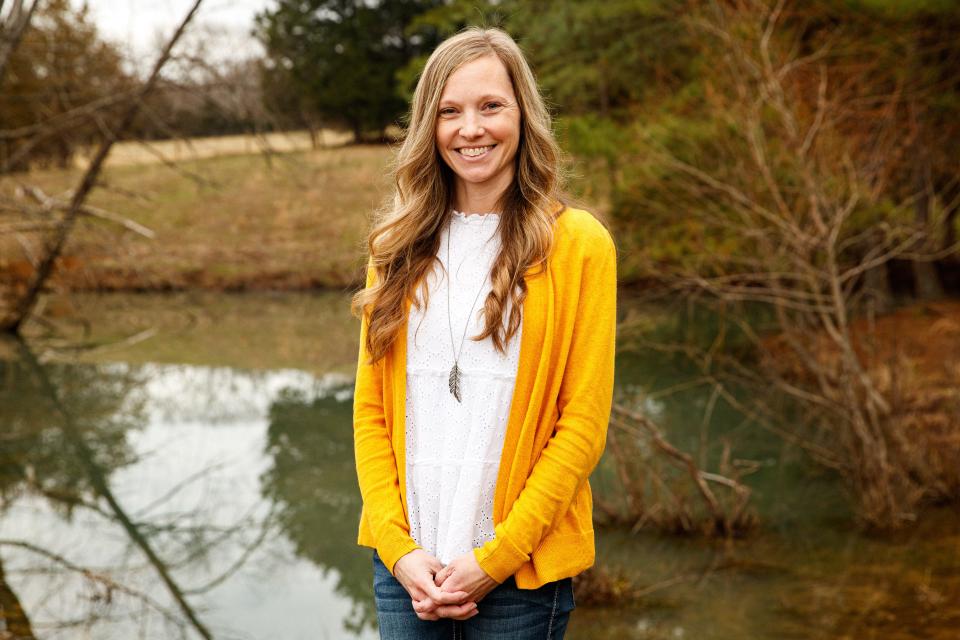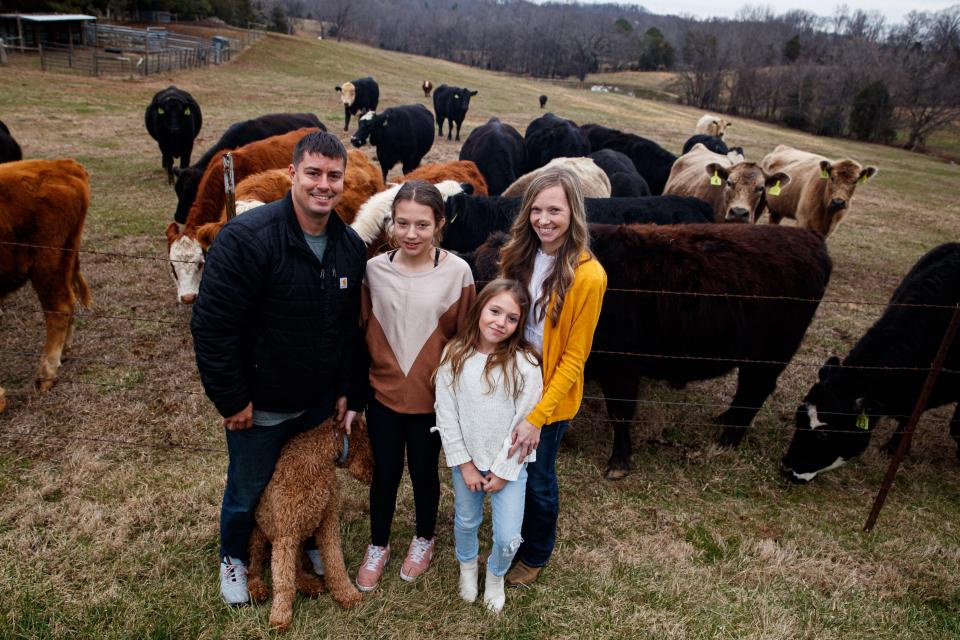Journey to healing: Culleoka woman's struggle to heal from COVID inspires her to help others

A racing 160 beats per minute heart rate, a stomach rippling with nausea and fatigue that is accompanied by an anxiety you’ve never felt are just some of the symptoms that Culleoka resident and medical professional Megan Heichelbech has experienced over the past two years.
“I could not stand light,” Heichelbech said. “I would even wear sunglasses in my house and sit in the dark; that’s how sensitive my eyes were to the light.”
Her legs ached and her whole body shook with tremors. Passing out felt a likely possibility much of the time for the wife and mother of two.
“Until I knew what it was, it was very scary,” said Heichelbech, who today, still suffers but adapts to life with a condition known as “POTS” – an acronym for postural orthostatic tachycardia syndrome.
POTS is a heart condition defined by its reduced volume of blood returned to the heart, following a person moving from the lying down to standing position.
Many who have endured COVID-19 have had to deal with the extended experience of POTS as well and recent reports from around the country show that more and more patients are seeing life impacts from the hard to diagnose illness.

Tachycardia as a main symptom, has its own medical classification and is defined as a rapid and irregular heartbeat faster than 100 beats per minute, but that is far from the only symptom of POTS.
Symptoms were bad enough to send the former Maury Regional Medical Center technician, Megan Heichelbech to the emergency room four times last year.
Life is more challenging today than it was before she first contracted COVID-19 a year ago and later developed this illness that often has medical professionals stumped, according to various news and journal reports.
In fact, Heichelbech said she endured a long wait for answers to questions about an illness that seems to ride quietly on the coattails of COVID-19.
But she says she wouldn't trade it for the journey to healing, despite the valleys that have caused her to adjust life to her own new normal.
Journey to healing deepens faith

Today, she credits her faith in Jesus, her family and her doctors for a new outlook – a changed perspective; and while her health is far from back to normal, she has persevered and found ways to adapt.
“I really don’t think I would be this far on my journey to healing without God and my family,” Heichelbech said. “Family is my motivation to get better and God is my strength and comfort.”
Her hopeful outlook sparked a motivation to inform, inspire and share her story in the form of a small book that she self published on Amazon, called “Overcome by Grace.”
Heichelbech would not tell you she is naturally a writer, but she felt compelled to share the story, and said it was as if God had given her the words she needed, when she needed them.
Surprised by the inspirational moment, she said words just poured out of her onto the page, but the debilitating illness would force her to put her career on hold.
After Heichelbech recovered from COVID, she went back to work but found lingering symptoms – symptoms that despite best efforts, always came back.

Experiencing the effects of “long COVID” put a strain on her life that she first thought was simply a matter of patience in healing until she could get back to normal.
But her illness, her symptoms and her frustration would continue to return – making it a day-by-day ordeal that many are dealing with following COVID-19.
“I’m still on that roller coaster,” Heichelbech said, as she shared her story with the Herald. “But it doesn’t go up and down as much.”
After attempts by doctors and hospital visits to find what was causing her continued symptoms, one doctor was finally able to determine the likely source of her life-altering diagnosis.
POTS illness suffered by some following COVID
A November 2022 article about POTS was published in the National Institute of Health showing between 2-14% of COVID-19 survivors develop the syndrome, with a greater presence in younger women.
An even greater number, 9-61%, of post-COVID patients suffer symptoms of POTS.
POTS is characterized by a long list of indicators that can cause significant impact to a person’s daily life, and as the report states, 70% of POTS sufferers have experienced loss of income with 21% having a job loss. Dysautonomia is another name for the disorder which can mimic “long COVID.”
According to the NIH report, in addition to a rapid increase in heart rate, patients can experience a whole host of other symptoms that co-occur with other illnesses, making it difficult to diagnose. These include:
Palpitations (irregular heartbeat)
Dyspnea (shortness of breath)
Syncope (fainting)
Brain fog
Lightheadedness
Blurred/tunnel vision
Tremulousness
Fatigue and weakness
Chronic pain (eg, headache, temporomandibular joint disorder, and fibromyalgia)
Gastrointestinal issues (eg, abdominal pain, bloating, gastroparesis, and nausea)
Sleep disturbances
As for causes of POTS, medical professionals are still learning conditions that lead to the illness but the NIH report states that a possible effect of SARS-CoV-2 on the autonomic nervous system or “tissue injury” due to the effect of the virus on particular cells within the body.
The disorder is described as a “multisystem” illness that affects various parts of the body.
Heichelbech’s usual work in imaging required her to move patients around in addition to other physical tasks.
Once POTS had fully taken hold, she was no longer able to perform these tasks, as heart rate increases and “crippling” anxiety stonewalled her ability to move patients.
Anxiety key symptom
Heichelbech said she didn’t experience anxiety prior to POTS, but this symptom was particularly pronounced for her in the past year, and while her doctor tried to treat symptoms, her work suffered and eventually, she was forced to file for medical disability.

At its worst, Heichelbech said POTS left her feeling hopeless, without answers and experiencing some depression from her limited activities with her two daughters and the strain she saw it put on her husband Ryan.
“I couldn’t even make a sandwich,” Heichelbech said of her time at home, where a reclining chair was her usual spot.
Though Heichelbech shared the discouraging aspects of her last year, today she does not dwell on the negatives.
Sharing her story has been something she hopes will provide encouragement and hope to others, not bring her attention or recognition.
The book contains questions for reflection and functions as a workbook so others can read and engage with their own healing journey.
Mostly, the journey has served to remind of her of the important things in life and deepened her faith.
Recently, she was thankful for being able to feel well enough to enjoy seeing her two daughters get baptized.
“I’ve always been a follower of God, but this has brought me much, much closer to him,” Heichelbech said.
An important Bible verse from the Book of Corinthians is printed on the back of the book and carries the reasoning behind telling her story:
“Who comforts us in all our troubles, so that we can comfort those in any troubles with the comfort we ourselves have received from God.”
Those interested in reading Megan’s entire story can find her book on Amazon and around the waiting rooms and offices of Maury Regional Medical Center.
This article originally appeared on The Daily Herald: Culleoka woman's struggle to heal from COVID inspires her to help others

